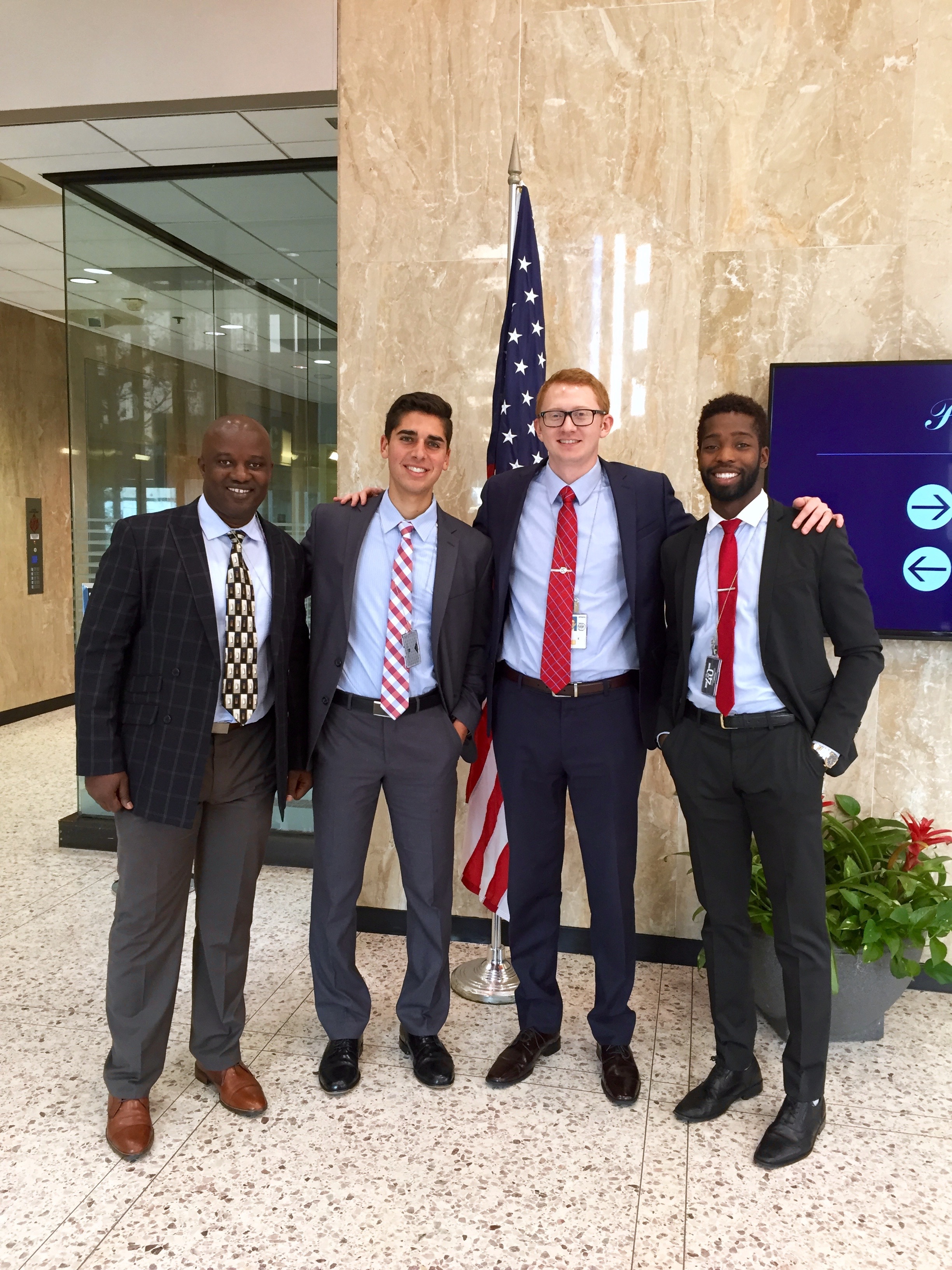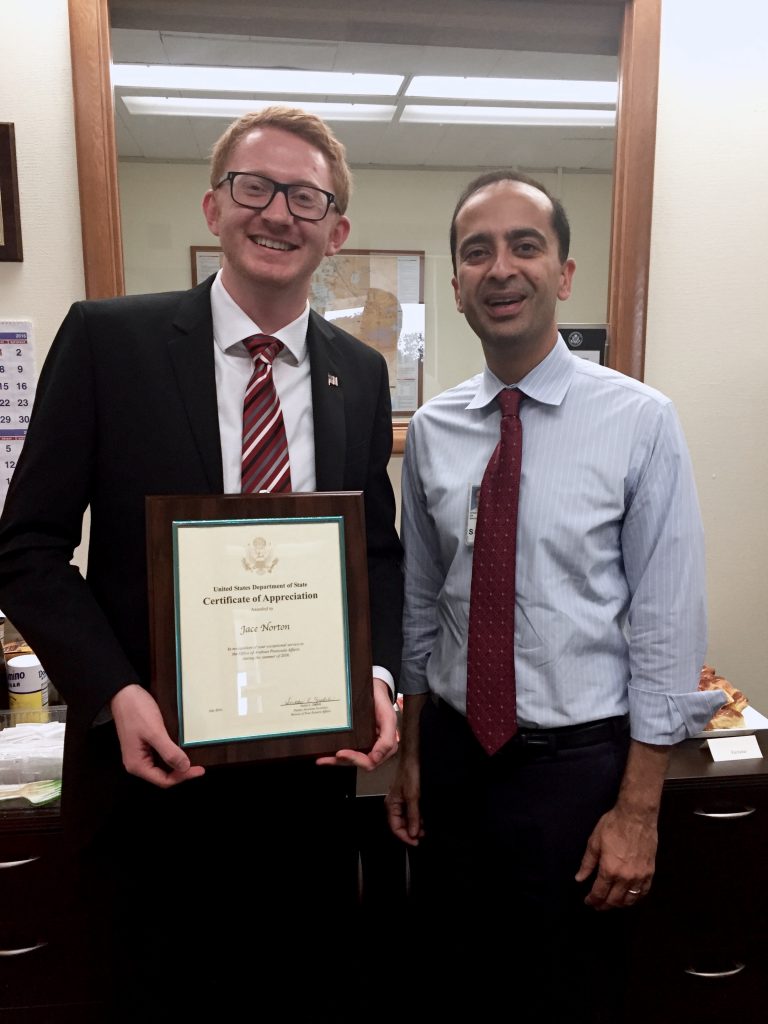
BYU’s Foreign Service Student Organization offers a number of ways for students to get involved and prepare for careers in the State Department as well as intelligence and federal law enforcement agencies, like the CIA or FBI.
The organization’s purpose is to give students opportunities to network, receive mentoring and prepare for the foreign service entrance exams. The Foreign Service Officer mentoring program is one of the best opportunities offered to BYU students through the Foreign Service Student Organization, according to co-president Richard Bruner.
The Foreign Service Student Organization hosts lectures, panels and other activities throughout the semester. The organization recently hosted an internship panel, allowing students to learn about internships their fellow students have completed and to ask questions. Co-president Eliza Riley coordinated the event.
Amber Kent Dukes spent last summer as an intern at the U.S. Consulate in Milan, Italy.
Dukes said she wanted to work for the State Department since she was 14 years old. She applied for the internship while on a study abroad in Italy.
She wrote her application essay about getting her wallet stolen in Florence and going through the legal process of getting certain documents reissued.
“I had to file a police report,” Dukes said. “That’s why they chose me to do consulate affairs, because they were like, ‘Oh, she knows exactly what all of those Americans are experiencing, so when they come talk to her at the window, she’s going to be understanding and have empathy and be able to serve them.'”
Dukes’ duties included typical office work, but she also got to interview visa applicants and process citizenship requests.
Nate Blackhurst interned at the U.S. Embassy in Suriname. Blackhurst worked directly with the ambassador because the embassy was so small — he even lived at the ambassador’s residence.
“I got to know pretty much everybody,” Blackhurst said. “I was at the ambassador’s residence. He has a pool house out back, and that’s where I lived. It was right on the river, which was really nice because I got to wake up to birds singing and ships going down the river.”
Blackhurst’s advice for other Foreign Service Student Organization students was to make a strong connection with their supervisor during the internship.
Stefan Bendtschneider shared his experiences from multiple internships. Bendtschneider said each internship is a building block for the next. He first interned with the West Valley City Police Department, then worked with the Salt Lake City IRS Criminal Investigation team and will soon be working with Immigration and Customs Enforcement for the U.S. Department of Homeland Security.
“Doing (the internship with the West Valley City Police Department) helped me get this internship, which was a little bit nicer,” Bendtschneider said. “I was with the IRS, which doesn’t sound very cool, but it was actually an amazing internship because I was working with special agents, which is my dream job.”

Jace Norton applied for the U.S. Foreign Service Internship Program and was one of the 24 applicants accepted. This program consists of two 10-week paid internships — one with the Department of State and one abroad.
Norton worked in the Office of Arabian Peninsula Affairs in the Bureau of Near Eastern Affairs last summer.
He will be going to Seoul, South Korea this summer to complete an internship in public diplomacy and cultural affairs.
“I have seen how well the club works to guide students through every part of the application process and to prepare them in a more general sense to be well informed and passionate about the work that they’ll be doing,” Norton said.
Norton said the purpose of the club is to provide students with a glimpse of life in foreign service or what working in the Department of State is like, as well as to spark student interest in these fields.
“(The other co-presidents of the club and I) are really passionate about it ourselves, so it’s an easy job convincing other students to get excited too,” Norton said.
Foreign Service Student Organization students share these experiences in hopes of helping other students prepare for their own internships. The co-presidents of the organization are hoping to put together a mentoring program for those who would like to do a Department of State internship in the future.
For more information about the Foreign Service Student Organization, students can visit the group’s page on the David M. Kennedy Center for International Studies website.




